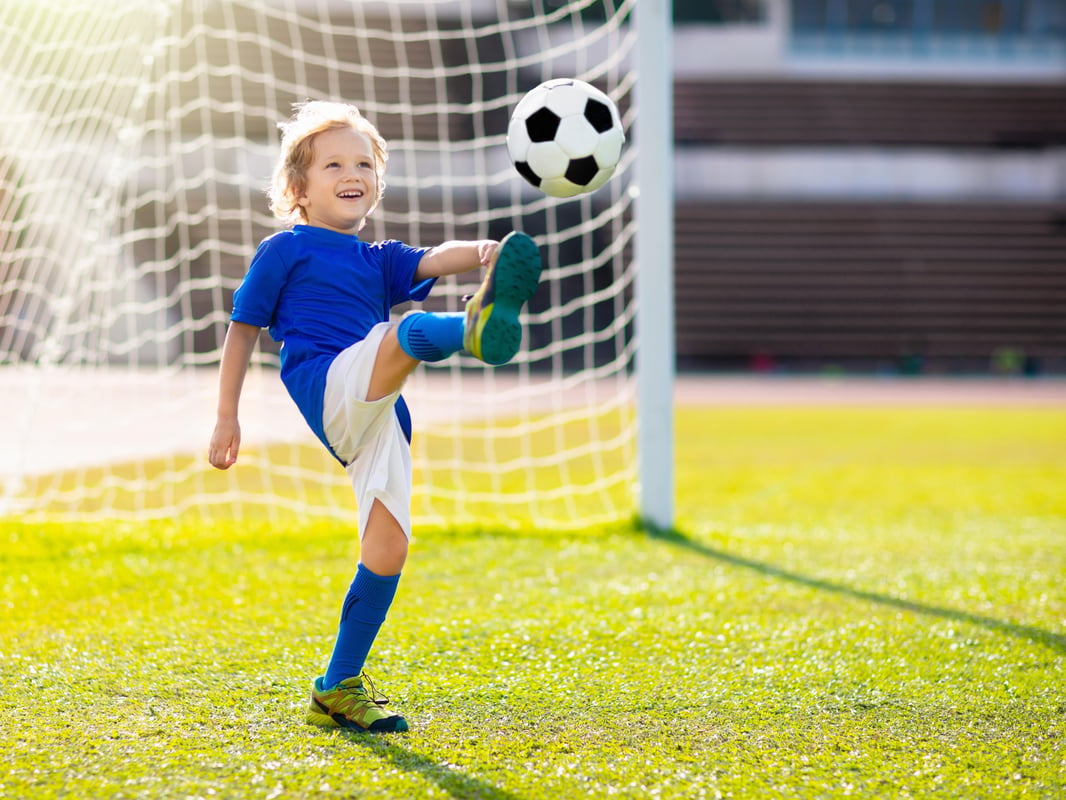Getting Your Child Ready for Spring Sports

SUNDAY, Feb. 19, 2023 (HealthDay News) -- Spring sports season will be here soon, so it’s time to get kids ready after a winter break.
Sports can teach valuable lessons, including teamwork, good sportsmanship, good communication, preparing for success, handling a loss, time management and the importance of doing your best, according to Henry Ford Health System in Detroit.
Pediatrician Dr. Stacy Leatherwood Cannon offers tips for parents to help kids get started safely.
First, get a pre-season evaluation, regardless of requirements or your child's age, she suggested. A doctor can detect any vision issues, joint problems, elevated blood pressure or other concerns that may affect the sports season.
If your child was less active in winter, take it slow. Help them work up to increasing amounts of physical activity and teach them to stretch before and after practices and games, Leatherwood Cannon said.
Make sure they’re using the right gear, which may include helmets or shin guards, cups, sports glasses for vision issues or sports goggles if there’s a risk of eye damage.
Remember sunscreen, even if it’s cloudy outside, she said. Kids should apply it liberally about 30 minutes before play or swimming. Hats, long-sleeved cotton shirts and shade can also provide protection.
Nutrition matters. Leatherwood Cannon recommends fueling up with fruits and vegetables to get essential vitamins and minerals. Lean protein helps build muscle, she noted, and both kids and adults need carbohydrates for endurance. Use moderation when eating processed and sugary foods.
Encourage kids to take time to warm up and cool down before each sports activity with a five- to 10-minute walk or jog and stretching.
While warmups gradually increase blood flow to the muscles and boost body temperature before exercise, Leatherwood Cannon noted that cool downs are also important. They allow heart rate and blood pressure to go back to normal.
Keep kids hydrated with plenty of water about one or two hours before starting an activity and small sips every 12 to 20 minutes during activity. A child can lose up to one quart of sweat during two hours of exercise, Leatherwood Cannon pointed out.
Water is best, but sports drinks are a good alternative for longer activity, because they contain additional carbohydrates and electrolytes.
Do not have your child “play through” an injury, Leatherwood Cannon said. Off time may be needed for adequate rest and healing.
Know the signs of a concussion, especially if you have teenagers. These include blurry or double vision, seeing stars, nausea and sensitivity to light. Make sure your teen understands the risks of playing with concussion symptoms.
Sleep is always important. Children between 3 and 6 years of age need 10 to 12 hours each night. Those who are 7 to 12 need 10 to 11 hours, and 12- to 18-year-olds should get eight to nine hours nightly.
More information
The U.S. Centers for Disease Control and Prevention has more on kids and exercise.
SOURCE: Henry Ford Health System
Related Posts
High Blood Pressure in 30s, Worse Brain Health by 70s?
WEDNESDAY, April 12, 2023 (HealthDay News) -- Be forewarned: High blood pressure...
Exposure to Occupational Inhalable Agents Could Increase RA Risk
WEDNESDAY, Dec. 7, 2022 (HealthDay News) -- Exposure to occupational inhalable...
Overweight/Obese BMI Linked to Worse Survival in Young People With Leukemia
THURSDAY, July 13, 2023 (HealthDay News) -- For adolescents and young adults...
Biden Administration May Stop Buying COVID-19 Vaccines, Treatments by Fall
WEDNESDAY, Aug. 17, 2022 (HealthDay News) -- The Biden administration plans to...
